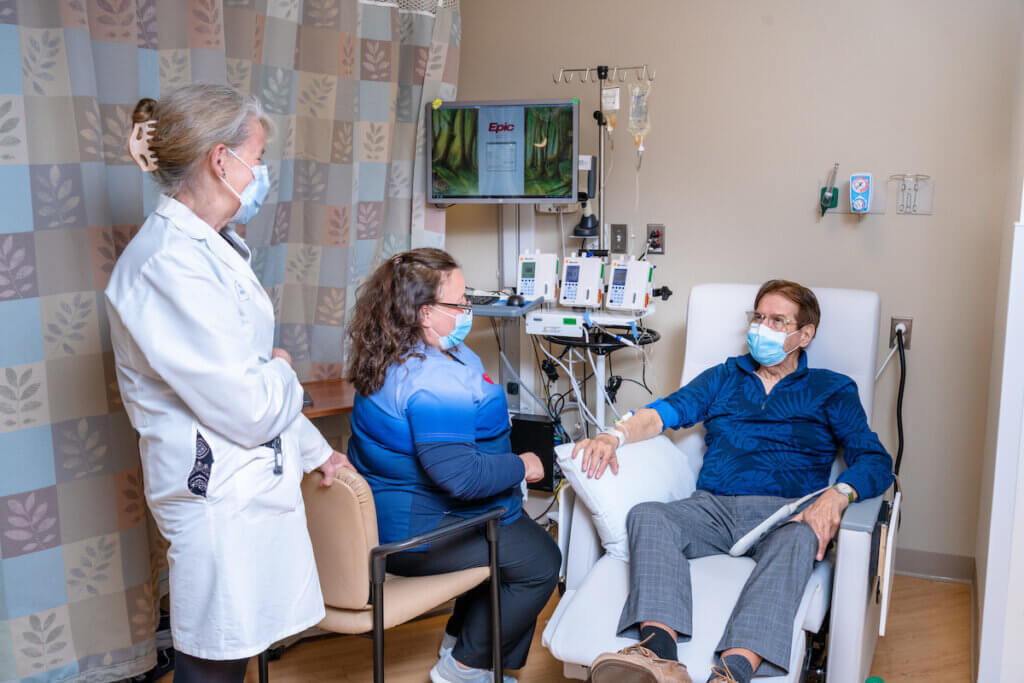Nurses play a critical role in caring for cancer patients. From administering therapies and managing side effects, to preparing patients and families for what to expect, they are often the providers who patients see the most. And because of the range of services they provide, there are often multiple nurses a patient will see throughout their treatment.

Infusion (chemotherapy) nurse. Infusion nurses guide the patient and family through the treatment process. They teach patients about chemotherapy and biological agents with a focus on what they might experience, symptoms to report, and how to care for themselves at home. An infusion nurse provides comprehensive, patient-family centered care and specializes in administering chemotherapy, infusions, antibiotics, blood transfusions, and IV hydration. They monitor patients during infusion and respond to any drug complications.
IV nurse. An IV nurse is a venous access specialist. They place IVs; access Port-A-Caths, peripherally inserted central catheters lines, or Hickman lines; draw blood needed for lab values; and educate patients about line maintenance.
Read More:
- As Roles Evolve, Oncology Nurses Share Passion for Care and Education
- Learning About Oncology Nursing from the Inside
- Cancer Diagnosis Leads to Nursing Career
Research nurse. A research nurse collaborates with physicians conducting clinical research, sharing the responsibility for the implementation and evaluation of clinical research studies. Research nurses help recruit and register patients in clinical trials, coordinate follow-up care, manage protocol data, and educate patients and families on study medications and clinical trial logistics. The research nurse collaborates with infusion nurses on each patient’s treatment protocol.
Nurse practitioner (NP). Nurse practitioners are advanced-practice nurses who work collaboratively with doctors to diagnose and treat illness, perform physical exams, offer preventive care, prescribe medication, and educate patients on their diagnosis and treatment.
Nurse scientist. Nurse scientists work with research coordinators and the care team on research studies that may improve patients’ quality of life.
Program nurse. Program nurses are members of the interdisciplinary team who help coordinate patient care. They are integral to patient-family education, symptom management, and patient monitoring. A program nurse provides patients and their families with information on different treatment plans and how to manage side effects.
Radiation oncology nurse. A radiation nurse specializes in caring for and helping patients manage side effects during daily radiation therapy.
Nurse leaders. Nurse leaders include nurse managers and charge nurses who oversee management of patient care areas.
A cancer care team is multi-faceted and involves many key players. Learn more about who you and your family will meet and interact with during your treatment at Dana-Farber
